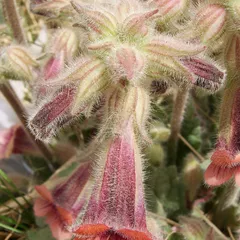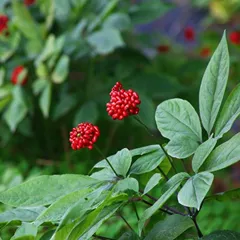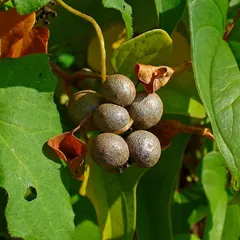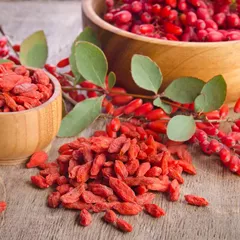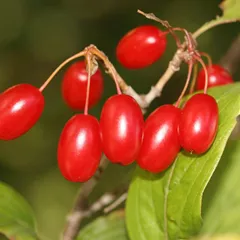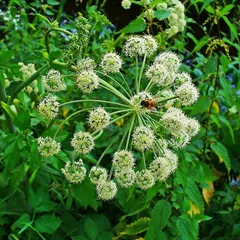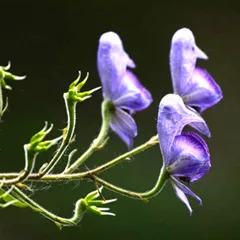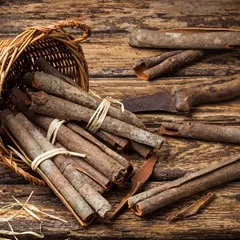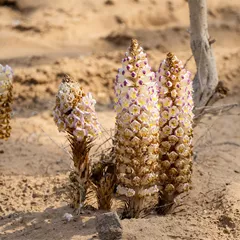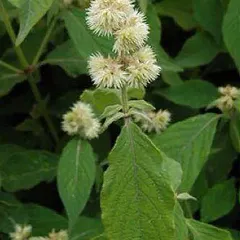You Gui Wan
You Gui Wan
Chinese: 右归丸
Pinyin: Yòu Guī Wán
Other names: Restore the Right [Kidney] Pill
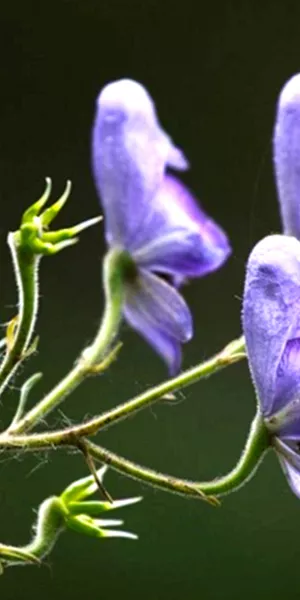
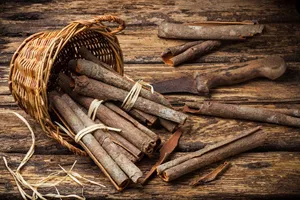
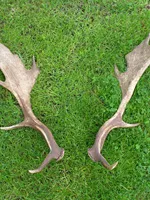
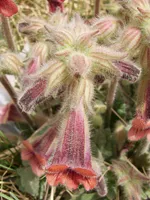




You Gui Wan
You Gui Wan
Chinese: 右归丸
Pinyin: Yòu Guī Wán
Other names: Restore the Right [Kidney] Pill
Number of ingredients: 10 herbs
Formula category: Formulas that warm Yang and tonify
Conditions for which it may be prescribed: AnemiaAsthmaLeukopenia and five other conditions
- Warms and tonifies Kidney Yang
- Replenishes the Essence
- Tonifies the Blood
Contraindications: Contraindicated when Kidney Deficiency is accompanied by Dampness or turbidity,... Contraindicated when Kidney Deficiency is accompanied by Dampness or turbidity, as this formula tonifies without draining. see more
Source date: 1624 AD
Source book: Collected Treatises of [Zhang] ling-Yue
The information provided here is not a replacement for a doctor. You shouldn't use it for the purpose of self-diagnosing or self-medicating but rather so you can have a more informed discussion with a professional TCM practitioner.
You Gui Wan is a 10-ingredient Chinese Medicine formula with Prepared Aconite (Zhi Fu Zi), Cinnamon Bark (Rou Gui) and Deer Antler Glue (Lu Jiao Jiao) as principal ingredients.
Invented in 1624 AD, it belongs to the category of formulas that warm Yang and tonify. Its main actions are: 1) warms and tonifies Kidney Yang and 2) replenishes the Essence.
In Chinese Medicine health conditions are thought to arise due to "disharmonies" in the body as a system. These disharmonies are called "patterns" and the very purpose of herbal formulas is to fight them in order to restore the body's harmony.
In this case You Gui Wan is used by TCM practitioners to fight patterns like Kidney Qi not Firm, Yang Deficiency or Empty Yang or Kidneys failing to receive Qi. From a Western Medicine standpoint, such patterns can give rise to a range of conditions such as menopausal syndrome, abnormal uterine bleeding or nephrotic syndrome for instance.
On this page, after a detailed description of each of the ten ingredients in You Gui Wan, we review the patterns and conditions that You Gui Wan helps treat.
The ten ingredients in You Gui Wan
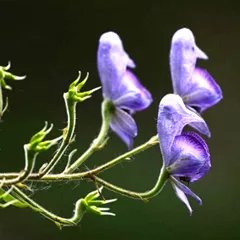
Zhi Fu Zi is a king ingredient in You Gui Wan. Like the name indicates, it means it has more power than other ingredients in the formula.
1. Prepared Aconite (Zhi Fu Zi)
Zhi Fu Zi works together with Cinnamon bark (Rou Gui) and Deer antlers glue (Lu Jiao Jiao) to warm and fortify the source Yang.
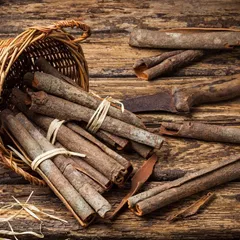
Rou Gui is a king ingredient in You Gui Wan. Like the name indicates, it means it has more power than other ingredients in the formula.
2. Cinnamon Bark (Rou Gui)
In general Rou Gui's main actions are as follows: "Warms the Spleen and Kidneys and tonifies the Yang. Expels Cold, Warms the meridians, promotes circulation of Qi and Blood and relieves pain. Used with tonics to assist in the generation of Qi and Blood."
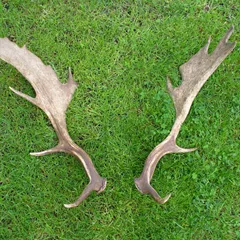
Lu Jiao Jiao is a king ingredient in You Gui Wan. Like the name indicates, it means it has more power than other ingredients in the formula.
3. Deer Antler Glue (Lu Jiao Jiao)
Part used: The horn (antlers) of the animal
Nature: Warm
Meridian affinity: KidneyLiver
Category: Tonic herbs for Yang Deficiency
In general Lu Jiao Jiao's main actions are as follows: "Yang tonification of the Kidneys and Liver, and to nourish vital Essence and Blood"
In the context of You Gui Wan, it is used because it replenishes the Essence and tonifies the marrow on top of warming and fortifying the source Yang.

Shu Di huang is a deputy ingredient in You Gui Wan. This means it helps the king ingredient(s) treat the main pattern or it serves to treat a coexisting pattern.
4. Prepared Rehmannia (Shu Di huang)
Part used: Prepared dried root tuber
Nature: Warm
Taste(s): Sweet
Meridian affinity: KidneyLiver
Category: Tonic herbs for Blood Deficiency
Shu Di huang work together with the other deputies (Shan Zhu Yu, Shan Yao, Gou Qi Zi, Tu Si Zi and Du Zhong) to nourish the Yin to benefit the Kidneys, nourish the Liver, and tonify the Spleen. Tonifying the Spleen is especially important in this formula as it helps to indirectly tonify and supplement Essence and Blood.
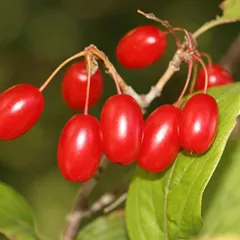
Shan Zhu Yu is a deputy ingredient in You Gui Wan. This means it helps the king ingredient(s) treat the main pattern or it serves to treat a coexisting pattern.
5. Cornelian Cherries (Shan Zhu Yu)
Part used: Dried ripe sarcocarp
Nature: Warm
Taste(s): Sour
Meridian affinity: KidneyLiver
Category: Herbs that stabilize and bind
In general Shan Zhu Yu's main actions are as follows: "Preserves and tonifies the Kidney, Liver and Essence. Stops sweating and benefits the Yang and Qi. Assists menstruation and stops bleeding."
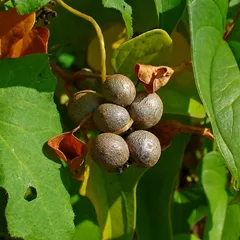
Shan Yao is a deputy ingredient in You Gui Wan. This means it helps the king ingredient(s) treat the main pattern or it serves to treat a coexisting pattern.
6. Yam (Shan Yao)
Part used: Dried rhizome
Nature: Neutral
Taste(s): Sweet
Meridian affinity: KidneyLungSpleen
Category: Tonic herbs for Qi Deficiency
In general Shan Yao's main actions are as follows: "Tonifies the Spleen and Stomach. Tonifies the Lung Qi and nourishes the Lung Yin. Nourishes the Kidneys and consolidates Jing."
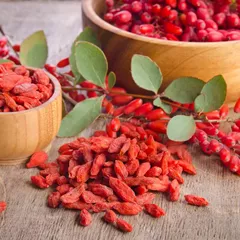
Gou Qi Zi is a deputy ingredient in You Gui Wan. This means it helps the king ingredient(s) treat the main pattern or it serves to treat a coexisting pattern.
7. Goji Berries (Gou Qi Zi)
Part used: Dried ripe fruit
Nature: Neutral
Taste(s): Sweet
Meridian affinity: KidneyLiver
Category: Tonic herbs for Yin Deficiency
In general Gou Qi Zi's main actions are as follows: "Tonifies the Yin of the Liver and Yin of the Kidneys. Brightens the eyes. Moistens the Lungs."
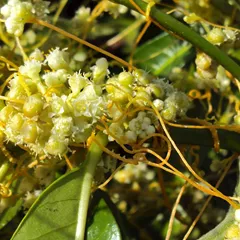
Tu Si Zi is a deputy ingredient in You Gui Wan. This means it helps the king ingredient(s) treat the main pattern or it serves to treat a coexisting pattern.
8. Cuscuta Seeds (Tu Si Zi)
Part used: Dried ripe seeds
Nature: Warm
Taste(s): Sweet
Meridian affinity: KidneyLiverSpleen
Category: Tonic herbs for Yang Deficiency
In general Tu Si Zi's main actions are as follows: "Tonifies Kidney Yang and Essence. Nourishes the Liver."
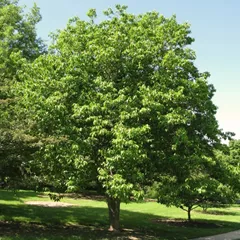
Du Zhong is a deputy ingredient in You Gui Wan. This means it helps the king ingredient(s) treat the main pattern or it serves to treat a coexisting pattern.
9. Eucommia Bark (Du Zhong)
Part used: Dried stem bark
Nature: Warm
Taste(s): Sweet
Meridian affinity: KidneyLiver
Category: Tonic herbs for Yang Deficiency
In general Du Zhong's main actions are as follows: "Tonifies the Liver and Kidneys. Calms ascendant Liver Yang (hypertension/high blood pressure). Calms a restless fetus."

Dang Gui is an assistant ingredient in You Gui Wan. This means that it either serves to reinforces the effect of other ingredients or it moderates their toxicity.
10. Dong Quai (Dang Gui)
Part used: Dried root
Nature: Warm
Meridian affinity: HeartLiverSpleen
Category: Tonic herbs for Blood Deficiency
In general Dang Gui's main actions are as follows: "Tonifies the Blood. Lubricates the Intestines. Relieve constipation. Promotes circulation and dispels Bi Pain. Reduce Dysmenorrhea and help with irregular menstruation."
In the context of You Gui Wan, it is used because it tonifies the Blood and nourishes the Liver.
Conditions and patterns for which You Gui Wan may be prescribed
It's important to remember that herbal formulas are meant to treat patterns, not "diseases" as understood in Western Medicine. According to Chinese Medicine patterns, which are disruptions to the body as a system, are the underlying root cause for diseases and conditions.
As such You Gui Wan is used by TCM practitioners to treat five different patterns which we describe below.
But before we delve into these patterns here is an overview of the Western conditions they're commonly associated with:
Menopausal syndrome Abnormal uterine bleeding Nephrotic syndrome Osteoporosis Infertility Anemia Leukopenia Asthma
Again it wouldn't be correct to say "You Gui Wan treats menopausal syndrome" for instance. Rather, You Gui Wan is used to treat patterns that are sometimes the root cause behind menopausal syndrome.
Now let's look at the five patterns commonly treated with You Gui Wan.
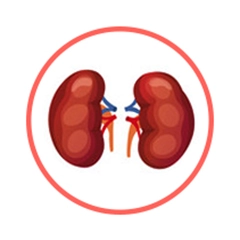
The Kidneys is a so-called "Zang" Organ. Learn more about the Kidneys in Chinese Medicine
Kidney Qi not Firm
Pulse type(s): Deep (Chen), Weak (Ruo)
Tongue color: Pale
Symptoms: Fatigue Enuresis Back pain Cold limbs Spermatorrhoea Sore lower back Weak lower back Feeling of cold Uterus prolapse Abundant urination Frequent urination Nocturnal emissions Weak stream urination Recurrent miscarriage Premature ejaculation Incontinence of urine White vaginal discharge Dribbling after urination Dragging down feeling of abdomen Weakness and aching in the knees
You Gui Wan is sometimes prescribed by TCM practitioners to treat Kidney Qi not Firm. This pattern leads to symptoms such as sore lower back, weak lower back, abundant urination and weak stream urination. Patients with Kidney Qi not Firm typically exhibit deep (Chen) or weak (Ruo) pulses as well as Slightly Pale tongue.
This pattern is also called ‘Lower Original Qi (元气 Yuan Qi) not Firm’, to show that it is also caused by a shortage of the Original Qi. When Original Qi is weak in the Lower Burner, Qi cannot hold Body Fluids which leads to many 'leaking' symptoms of the sperm, vaginal discharge or urination.

'Deficient' as a body pattern in Chinese Medicine is one of the so-called "Eight Principles". Learn more about Deficiency / Empty in Chinese Medicine
Yang Deficiency or Empty Yang
Pulse type(s): Deep (Chen), Empty (Xu), Slow (Chi), Weak (Ruo)
Tongue color: Pale
Symptoms: Edema Fatigue Lassitude Pale face Impotence Frigidity Pale urine Low energy Cold limbs Infertility Fear of cold Loose stools Desire warmth Watery stools Feeling of cold Profuse urination Frequent urination Night time urination Premature ejaculation Undigested food in the stools Clear white vaginal discharge abdominal pain relieved by presure and warmth
You Gui Wan is sometimes prescribed by TCM practitioners to treat Yang Deficiency or Empty Yang. This pattern leads to symptoms such as feeling of cold, desire warmth, pale urine and undigested food in the stools. Patients with Yang Deficiency or Empty Yang typically exhibit deep (Chen), empty (Xu), slow (Chi) or weak (Ruo) pulses as well as Pale, swollen and moist tongue with possible white or wet coating.
Yang Deficiency is an Empty-Cold condition characterized by Coldness and Deficiency. If there is inadequate amount of Yang energy to warm the body or internal Organs, a general hypoactivity of the organic processes occurs, hence the patient is tried and not willing to move. Qi and Blood is more... read more about Yang Deficiency or Empty Yang

The Kidneys is a so-called "Zang" Organ. Learn more about the Kidneys in Chinese Medicine
Kidneys failing to receive Qi
Pulse type(s): Deep (Chen), Tight (Jin), Weak (Ruo)
Symptoms: Asthma Tinnitus Thin body Dizziness Cold limbs Weak breath Rapid breath Listlessness Chronic cough Lower back pain Clear urination Spontaneous sweating Swelling of the face Difficulty in inhaling Shortness of breath on exertion
You Gui Wan is sometimes prescribed by TCM practitioners to treat Kidneys failing to receive Qi. This pattern leads to symptoms such as shortness of breath on exertion, rapid breath, weak breath and difficulty in inhaling. Patients with Kidneys failing to receive Qi typically exhibit deep (Chen), tight (Jin) or weak (Ruo) pulses.
This pattern results from a dysfunction of the Kidneys' capacity to receive and hold Qi down. The Kidneys' role in the cycle of Qi is to receive Clean Air from the Lungs and holding it down so it combines with Grain Qi from the Spleen to form Gathering Qi.
When the Kidneys cannot receive and hold... read more about Kidneys failing to receive Qi

The Kidneys is a so-called "Zang" Organ. Learn more about the Kidneys in Chinese Medicine
Kidney Yang Deficiency
Pulse type(s): Deep (Chen), Slow (Chi)
Tongue coating: Thin white coating
Tongue color: Pale
Tongue shape: Swollen
Symptoms: Asthma Chills Fatigue Dysuria Tinnitus Coughing Dizziness Weak legs Lassitude Impotence Sore back Pale face Back pain Dark face Tiredness Knee pain Depression Cold limbs Leukorrhea Weak Limbs Weak knees Infertility Loose teeth Late period Hot flushes Poor memory Loose stools Constipation Incontinence Night sweats Spermatorrhea Poor appetite Oedema of legs Abdominal pain Dripping urine Scanty periods Lower back pain Feeling of cold Low sperm count Sore lower back Premature aging Decreased libido Aversion to cold Cold extremities Oedema of ankles Vaginal discharge Frequent urination Urinary difficulty Pale color periods Abdominal fullness Cold and weak knees Persistent diarrhea Nocturnal emissions Cold hands and feet Premature menopause Infertility in women Night time urination Pale menstrual blood Premature ejaculation Incontinence of urine Prostatic hypertrophy Bright-white complexion Absence of menstruation Thin and watery periods Lower abdominal pressure Pale and abudant urination Thin body lacking strength Loss of hearing or deafness Spasms of the lower abdomen Cold in the lower extremities Edema of the lower extremities Weakness and aching in the knees Exhaustion from long-term illness Weakness of the lower extremities Thin and watery vaginal discharge Nocturnal emissions without dreams Sensation of cold in the lower back Soreness and weakness in the lower back Cold sensation in the lower half of the body
You Gui Wan is sometimes prescribed by TCM practitioners to treat Kidney Yang Deficiency. This pattern leads to symptoms such as lower back pain, dizziness, tinnitus and cold and weak knees. Patients with Kidney Yang Deficiency typically exhibit deep (Chen) or slow (Chi) pulses as well as Pale tongue.
Kidney Yang Deficiency causes Internal Cold and weakness. It indicates that the Fire of the Gate of Life, which is located between the two Kidneys and supplies fundamental warmth for the body, is also impaired. Therefore, the Organs lack warmth and cannot fully perform their... read more about Kidney Yang Deficiency

The Kidneys is a so-called "Zang" Organ. Learn more about the Kidneys in Chinese Medicine
Kidney-Deficiency
Pulse type(s): Deep (Chen), Weak (Ruo)
Tongue color: Pale
Symptoms: Tinnitus Back pain Knee pain Dizziness Sore back Pale face Cold limbs Weak knees Amenorrhea Late period Malar flush Night sweats Restlessness Scanty periods Feeling of cold Frequent urination Pale menstrual blood Thin and watery periods Feeling of heat in the evening
You Gui Wan is sometimes prescribed by TCM practitioners to treat Kidney-Deficiency. This pattern leads to symptoms such as scanty periods, pale menstrual blood, back pain and knee pain. Patients with Kidney-Deficiency typically exhibit deep (Chen) or weak (Ruo) pulses as well as a pale tongue.
Formulas similar to You Gui Wan
Da Bu Yuan Jian is 60% similar to You Gui Wan
Zuo Gui Wan is 60% similar to You Gui Wan
Da Ying Jian is 50% similar to You Gui Wan
Dang Gui Di Huang Yin is 50% similar to You Gui Wan
Zan Yu Dan is 50% similar to You Gui Wan
Ji Sheng Shen Qi Wan is 50% similar to You Gui Wan

